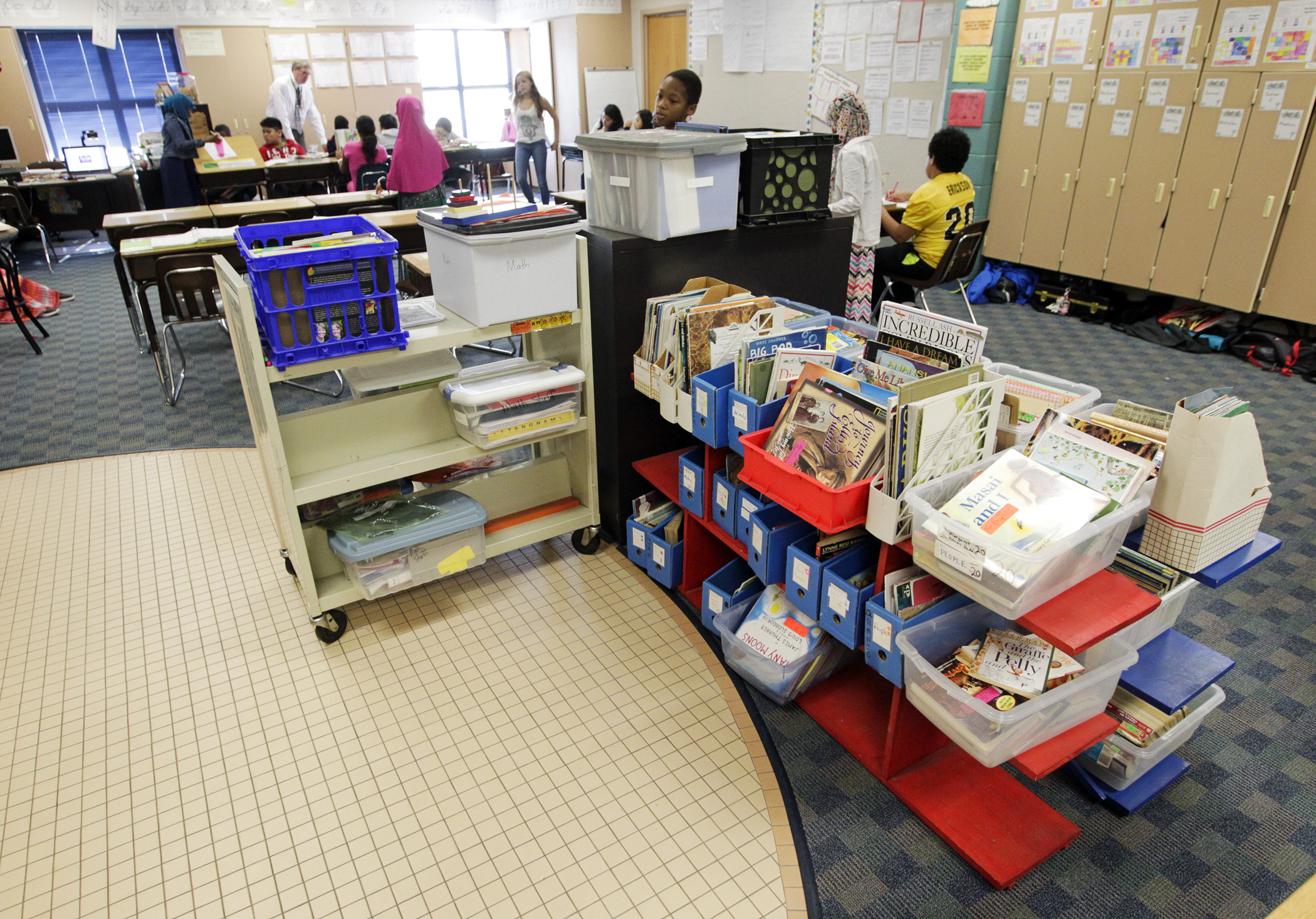‘Increase Teachers of Color Act of 2021’ clears education committee on party-line vote

A severe and persistent shortage of teachers of color and American Indian teachers is a major contributing factor to why Minnesota learners suffer from opportunity and achievement gaps, education experts and advocates say.
Sponsored by Rep. Hodan Hassan (DFL-Mpls), HF217 aims to strengthen programs and policies to attract, prepare and retain more teachers of color and American Indian teachers. The bill was approved 11-7 along party lines by the House Education Policy Committee Wednesday, and now heads to the House Education Finance Committee. There is no Senate companion.
According to data collected by the state’s teacher licensing board, there is a large divide between the percentage of students of color and the educators that lead their classrooms. Most recent data suggests students of color and Indigenous students comprise 35% of learners, compared to 5.6% teachers of color or American Indian.
“As we know, representation matters,” Hassan said. “Kids learn best when taught by people who understand their communities and life experiences, and all students benefit from diverse teachers.”
Provisions in the bill were crafted with input from parents, students, educators, ethnic councils and others from various communities over the past several years, according to Paul Spies, legislative action team lead for the Coalition to Increase Teachers of Color and American Indian Teachers in Minnesota.
It includes a compilation of provisions from the proposed 2019 and 2020 Increase Teachers of Color acts that didn’t make it into law, with some updated language that reflects how the world has changed since last summer and the racial reckoning that occurred.
“HF217 is intentionally a large and complex bill to address a complex systemic problem that has existed in our state for decades and worsens each year we don’t take comprehensive actions needed to address the need for more diverse teachers,” Spies said.
Minnesota’s 2020 Teacher of the Year, Qorsho Hassan, shared the challenges she experienced as a student of color and the barriers she continues to face as an educator, including seniority-based layoffs and lack of support from school administrators.
“This past fall I read, ‘Something Happened in Our Town,’ a book about racial injustice, to my students,” she said. “When I was criticized very publicly about my choice to use this book, my school administrators let me face the backlash alone.”
A measure within the bill would hold administrators accountable for being culturally responsive and require school boards to have a policy that prohibits discrimination or discipline for a teacher for incorporating into curriculum contributions by a person or protected class.
Rep. Sondra Erickson (R-Princeton) unsuccessfully offered a delete-everything amendment that would have prohibited seniority-based layoffs, modified mentoring program requirements and altered Tier 1 licensure requirements. The proposal failed 11-7 on a roll-call, party-line vote.
”I believe, and we believe, that this DE amendment is a serious effort to plug the holes that force teachers of color and American Indian teachers out of the classroom,” Erickson said.
Other policy measures in the bill include:
- establishing a state goal to increase the percentage of teachers of color and American Indian teachers each year by 2%;
- requiring districts to modify their World’s Best Workforce strategic plans to include access for all learners to an ethnic studies curriculum using culturally responsive methodologies;
- eliminating Tier 3 and Tier 4 pedagogy and content exam requirements for candidates who have completed board-approved preparation programs or have passed licensure examinations in other states; and
- requiring school districts or charter schools to allow an American Indian student to wear regalia or objects of culture significance at a graduation ceremony.
The proposal also includes appropriations for the 2022-2023 biennium:
- $17 million for the Grow Your Own pathways to teacher licensure grants;
- $12 million for collaborative urban and Greater Minnesota educators of color grants;
- $6 million for mentoring and retention incentive programs grants for teachers of color;
- $6 million for equitable school enhancement grants;
- $1.2 million for American Indian teacher preparation grants;
- $1 million for expanded concurrent enrollment grants;
- $1 million for a teacher recruitment marketing campaign; and
- $700,000 for come teach in Minnesota hiring bonuses.
Related Articles
Search Session Daily
Advanced Search OptionsPriority Dailies
Speaker Emerita Melissa Hortman, husband killed in attack
By HPIS Staff House Speaker Emerita Melissa Hortman (DFL-Brooklyn Park) and her husband, Mark, were fatally shot in their home early Saturday morning.
Gov. Tim Walz announced the news dur...
House Speaker Emerita Melissa Hortman (DFL-Brooklyn Park) and her husband, Mark, were fatally shot in their home early Saturday morning.
Gov. Tim Walz announced the news dur...
Lawmakers deliver budget bills to governor's desk in one-day special session
By Mike Cook About that talk of needing all 21 hours left in a legislative day to complete a special session?
House members were more than up to the challenge Monday. Beginning at 10 a.m...
About that talk of needing all 21 hours left in a legislative day to complete a special session?
House members were more than up to the challenge Monday. Beginning at 10 a.m...